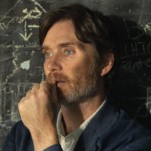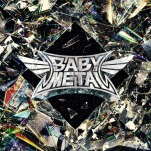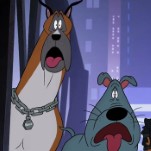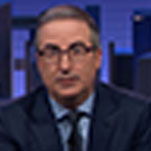The Muskdown: How Elon Musk Lost His Cool on Twitter
Photo courtesy of Getty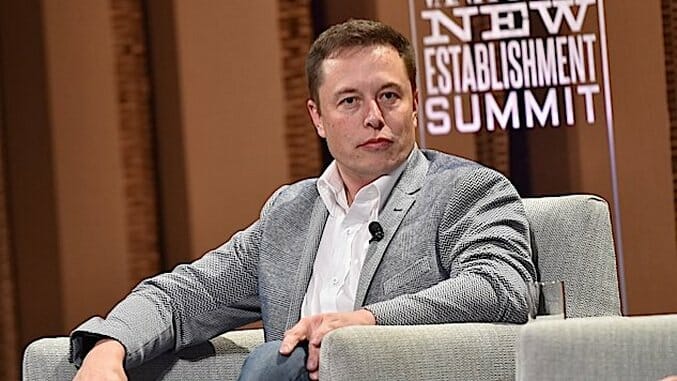
Friend, imagine you had billions of dollars. Would you still find time to get mad online?
Elon Musk has. In the last two weeks or so, Musk has been unrestrained on Twitter. It’s been one reputation-denting dive after another for the once-untouchable technocrat. Musk attacks science, like when he snapped at Upulie Divisekera. Musk attacks journalism, like when he called for a ridiculous rating system for the press.
It’s the most hilarious collapse since the cave-in at the Old Theranos Place last year. And Musk brought it all on himself. A meltdown—nay, a Muskdown for the ages.
He’s been feuding nonstop with critics online: responding to every slight criticism as if he were Dan Harmon, but without the bottled rage. It’s as if a gifted Maoist performance artist decided to discredit the myth of entrepreneurship on the largest possible stage. Even the Vox explainer was brutal: “Musk is mad that the media has stopped presenting his stories as nonfiction.”
Musk’s basic problem can be summed up by the ancient proverb about checks and specific asses that can’t cash them.
His Model 3 Tesla is not being produced as promised. His investors are beginning to talk. His companies, they say, are overvalued.
Now, if you’re a businessman, you spend most of your time problem-solving. That’s true if you’re a small-time capitalist, like a landlord. And if you’re a big wheel—if you’re a tycoon—then your life consists of plugging one leak after another. As a magnate, you are judged by how well you deliver, and how you respond to stress. At the end of the day, Musk has proven incapable at mastering either skill. Why? Because Musk is a storyteller. Not a CEO, or a craftsman, or a visionary. He’s Eric Garland with an IPO. Nothing more, nothing less.
THEY BOUGHT IT
Now, rich and powerful people lose connection with reality all the time. Some sitcom stars use Ambien for that very purpose.
Here’s what makes the Muskdown notable: until recently, Musk moved in an exalted sphere beyond the pizza-buffet concerns of most mortals. I’m not just talking about money. Elon has gotten a free ride on the Internet meme ‘n’ worship train since, oh, 2003 or thereabouts. He came to prominence thanks to PayPal, which he founded with noted space mutant Peter Thiel.
Since then, Musk has been getting credit for breathing vital airs into every sci-fi project you can make a Reddit post about. Cars? Musk is reinventing them, his fans say. Space? Musk will recolonize it for us, the Muskites chant. When Musk tweets about inventing a new kind of flamethrower, the entire bacon-and-narwhal section of the online brain lights up, and wouldn’t you know it, pretty soon there’s a post on 9Gag about it.
Musk coasted along on a rich river of reputation since his first brush with fame. But all public lives eventually collide with irony, and science-hero Musk began to collapse when actually rational investigators took a look at his projects. The Musk Deconstruction project can be summed up easily:
1. Like pretty much all billionaires from the dawn of time, Musk got a little wealthy by taking advantage of publicly-funded goods (like tech research) and underpaying his employees. Then he got a lot rich when the casinos on Wall Street over-valued his companies. as they do with every tech service.
2. Musk used this wealth and fame to sell his brand as a Tony Stark-style futurist. Like all Silicon Valley plutocrats, he pretends to be a very new version of corporate owner … when, like all of them, he’s another robber baron.
3. Like Steve Jobs, Musk’s reputation exists on a skillfully-cultivated public image, which is centered around him as some kind of oracle of technology. Like Jobs, this is mostly bullshit. Like Jobs, Musk’s technologies are invented by Musk’s employees, who are actually clever and actually gifted.
4. Despite the rah-rah surface liberalism of Silicon Valley (and of Musk), the guy is poured in the mold of Andrew Carnegie: he doesn’t like unions, and will stop at nothing to frustrate his employees from forming one. Actually, that’s not fair to Carnegie: he began life as a poor boy. Musk went to a series of very good schools.
5. Finally, Musk is not bankrolling any of his history-book bids. We are. What Musk is best at—where he just excels—is getting the government to fund his ventures. At every turn, he has been the beneficiary of immense governmental outlay. These follow a predictable target: Musk talks to government officials. Musk floats an idea. Musk speaks to the press to generate interest. Depending on the response, Musk has one of his companies proceed, or puts the idea on the back-burner.
6. Even after getting away with 1 through 5, Musk has not been able to deliver on his promises. The most he can offer are press releases and high-yield publicity stunts.
Musk’s fans drank the sacramental wine a long time ago. Less dazzled observers should call Musk what he is: a concert promoter who gets praised by tech journalists. No wonder he’s dating Grimes: they’re both in the entertainment business.
Indeed. The most remarkable fact about Elon Musk has nothing to do with Musk himself. It is the strange existence of Musk fans, who take it upon themselves to stan, and stan hard, for a billionaire. After Erin Biba critiqued Musk, the Muskites attacked her online. Biba quoted Brianna Wu:
“There seems to be a contingency that feels the need to defend Musk from any statement that could be considered critical,” said Wu, who is now a candidate for the House of Representatives in Massachusetts. “They are thoroughly unpleasant to deal with. I dread @ mentioning Elon, because it’s going to make Twitter unusable. A billionaire does not need to be shielded from critique.”
Yes. But Musk is less intimidating than most billionaires. I do not fear Musk’s proposed Pravda, for the same reason I am indifferent to most of Musk’s proposals: there’s zero chance of it coming to pass unless the government or smarter people do the heavy lifting for him.
The one product Musk has control of, the one he can deliver reliably and on time, is his own gaffe-prone self. And that’s the comedy—or the tragedy—of Musk’s Twitter. Honestly, I can’t imagine a funnier deconstruction of Musk’s rep as visionary engineer. The maximum product of the Musk Brand, Elon himself, is breaking down so spectacularly. If the master-builder himself is shooting off sparks and steam, how much stock should we put in any of “his” inventions?
WHY WE NEED HIM
However. I am glad Elon Musk exists. Every precious piece of my world has a purpose, as the paper-doll hoarder told the fire marshal. Personally, I believe that we’re all here for a reason.
Donald Trump is God’s own folly. Trump exists to show us how empty our presumptions are. His existence proves the following: the Presidency is not a noble office. Wealth is debasing. Capitalism does not reward virtue. Rich predators get away with it. The Republican party are crooks. The Democrats are corrupt, compromising hacks.
Elon Musk exists for the same reason. Trump could never disprove American technocracy. But Musk can. He’s as petty and fraudulent as the rest of the great silicon magnates, and thanks to the Internet, we can see it 24/7.
The notion of an aristocracy of blood persisted for centuries. We have an alternative aristocracy now, an aristocracy neoliberals swear by: the aristocracy of talent. The cult of meritocracy. Musk disproves it.
As he should. The old nobility, like the divine right of kings, presumed a world where the peasants could not see the everyday boobery of their betters. But those walls are down now. Musk is not a maker, a dreamer, an innovator, or a scholar. He has one talent: taking the public money and private credit.
In truth, Musk is the Matt Groening of tech, except we got ten good years of The Simpsons and Musk has only given us one good week of comedy.
Still, I must give Musk credit: he has one impressive innovation to his name. Thomas Edison invented the profession of claim-stealing inventor. That achievement stood for a century. Until May 2018, when Elon Musk discovered a way to reverse the Edison process—like a man shedding hair plugs under midnight stress. Elon Musk contrived a way to efficiently shred the myth of Elon Musk. We ought to give him credit for it. By inventing his own eventual irrelevance, Musk has shown us a better future. I, for one, am grateful.


























